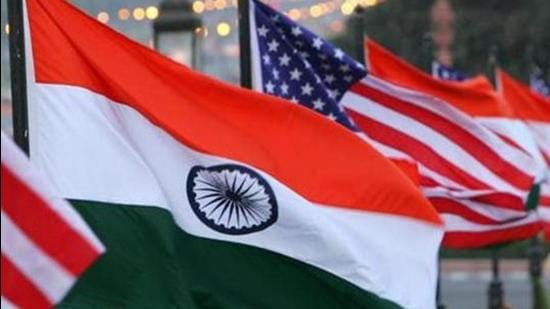Where Delhi and DC agree, disagree
Strategic imperatives bind the two nations. The government has taken a political risk in deepening ties with DC. Washington must not export its own battles with Moscow to the Indian theatre and it must keep an eye on the bigger challenge.
The frequency of high-level engagement between India and the United States (US) is remarkable. Ten days after Prime Minister Narendra Modi concluded his bilateral visit to the US, Wendy Sherman — the second highest official in the state department — visited India. Finance minister Nirmala Sitharaman is expected to visit Washington soon, and the 2+2 dialogue will see defence minister Rajnath Singh and external affairs minister S Jaishankar travel to the US in November. Secretary of state Antony Blinken, secretary of defense, Lloyd J Austin, Central Intelligence Agency director William Burns, and US climate envoy John Kerry have already visited India. And this is just an indicative, not an exhaustive, list.

Both countries, of course, have a lot to talk about — from trade to tech, defence to democratic values, climate to Covid-19. But in her remarks on China and Afghanistan, Ms Sherman got to the rub of what is occupying the mind space of policymakers in both Raisina Hill and Foggy Bottom. On Afghanistan, in what is a vindication of India’s position, Ms Sherman put Indian security concerns at the “front and centre” and laid out red lines for the Taliban regime. This message should now percolate down the US establishment, result in greater intelligence-sharing with Indian agencies about Pakistan and its terror proxies, and ensure that all international instrum-ents are used to keep the Taliban in check. On China, Ms Sherman spoke of how the US will cooperate with China when needed, but also compete with it and challenge it. The cooperation dimension is an acknowledgment of the common climate challenge and complex US-China economic ties. But it is the adversarial element that is now predominant — China’s aggressive moves in Taiwan aren’t helping. Given that Delhi’s central geopolitical contradiction is now with Beijing, clarity in the US on the China challenge is helpful.
Not all is fine though. Ms Sherman’s remarks on S-400s — India’s acquisition of S-400 missile systems from Russia will trigger US sanctions unless President Joe Biden waives these — indicates difficulties ahead. The US may have its constraints but it would be a mistake if it doesn’t make an exception for India, when Delhi has diversified its defence acquisitions. Many in India are concerned about the dilution of the relationship with Russia. The Afghanistan exit has emboldened sceptics to ask questions about US reliability. The government has taken a political risk in deepening ties with DC. Washington must not export its battles with Moscow to the Indian theatre, and it must keep an eye on the bigger challenge.
Continue reading with HT Premium Subscription




